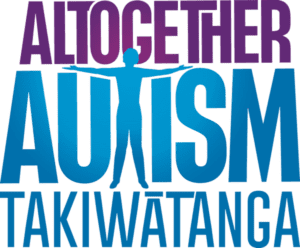
Flatting with others
Do you need support setting up a flat with friends – possibly others with a disability as well? Flatting or house-sharing is a great option if you don’t want to live alone but want to become independent from your parents or family. You could still be eligible for funded support to help make flatting work for you – or you may wish to pay privately for a support person to carry out some tasks for you. Below is some information on flatting with others. You could also check out Four Go Flatting – a handbook and video series which has heaps of great information about flatting with a disability.
Universities also produce good guides on flatting, including this guide from the University of Canterbury.
Question Time with Kimmy
Kimmy wasn’t happy with her living situation. At 32 years of age she was made to go to bed at eight o’clock every night. But Kimmy’s enjoying more independence now she’s flatting with two friends in a warm and friendly home environment.
Finding a flat
Finding a flat can be challenging for everyone, with or without a disability – so make sure you allow plenty of time to find something that will suit your needs, including accessibility. When looking at locations, think about your Circle of Support and how close you will be to the places you need to visit frequently.
The private rental market offers more choice, but prices may be higher. The Accommodation Supplement may be available to help with accommodation. If you have a NASC provider, you can also talk about whether social housing, including a Housing New Zealand home, is possible for you.
Finding flatmates
A group of flatmates will always have different views, opinions and personalities but you should think about the qualities in people that would make a great living environment for you. For example, do you get along with fun, outgoing people or would you prefer someone quiet and calm? You could advertise on Trade Me or NZ Flatmates or a local noticeboard or community forum. Word of mouth (getting friends and family to help) is also a good idea. If you have a service provider, they might also help you set up your flatting situation.
Sort out the tenancy agreement
Make sure you understand the tenancy agreement with your landlord. If you are the sole tenant listed on the lease you will be responsible for any damage caused or money owed by other people living in the house. Another option is for all the flatmates to sign the agreement so you will all be equally responsible. Read more about tenancy agreements and starting flatting here on the Government’s Tenancy Services website.
What support is available?
Do you need help to do housework or personal care, such as help washing and dressing, because of your disability? Or help with learning life skills, like budgeting and shopping? Read about funded and un-funded support available to you while flatting.
Top tips for going flatting
- Plan it out first – what is your vision for flatting with others? Have some clear goals and ideas for what you’d like and a timeframe in mind. Make sure you’ve worked out your own budget before you go flatting. If you need help, the National Building Financial Capability Charitable Trust can connect you with a free and confidential budget advisor.
- Get a flat-sharing agreement in place so you all know your roles and responsibilities. Download an online template.
- Work out the budget with your flatmates – there are some great tools at on the Sorted.org.nz website.
- Be prepared to be flexible – it’s hard to find the absolute ideal set-up so focus on finding a situation which meets your needs well but might not necessarily tick all of your boxes.
- Be a courteous flatmate. Carry out your agreed share of duties (or arrange for your support person to do these on your behalf) and be considerate with noise and awake hours.
- Learn how to do some simple tasks like cleaning a kitchen or bathroom and brush up on cooking skills before you move in – if you’re able to help with these.
Other options similar to flatting to consider. . .
- Private board – where you live with other people but pay them directly for rent and often meals as well is another option. You can read about private board agreements on the Citizen’s Advice Bureau website.
- Paying a flatmate as a support person – think about the possibility of having a flatmate who’s paid for a support role of some sort eg cooking your meals – this should be a clear agreement in writing to reduce the likelihood of any problems arising.
- Teaming up with other families to buy a house – some people with disabilities have teamed up with other families to pool together money to buy a house and operate it as a Trust. This would need to be organised through lawyers, with agreements in place on how the funding, mortgage and rent would work.





